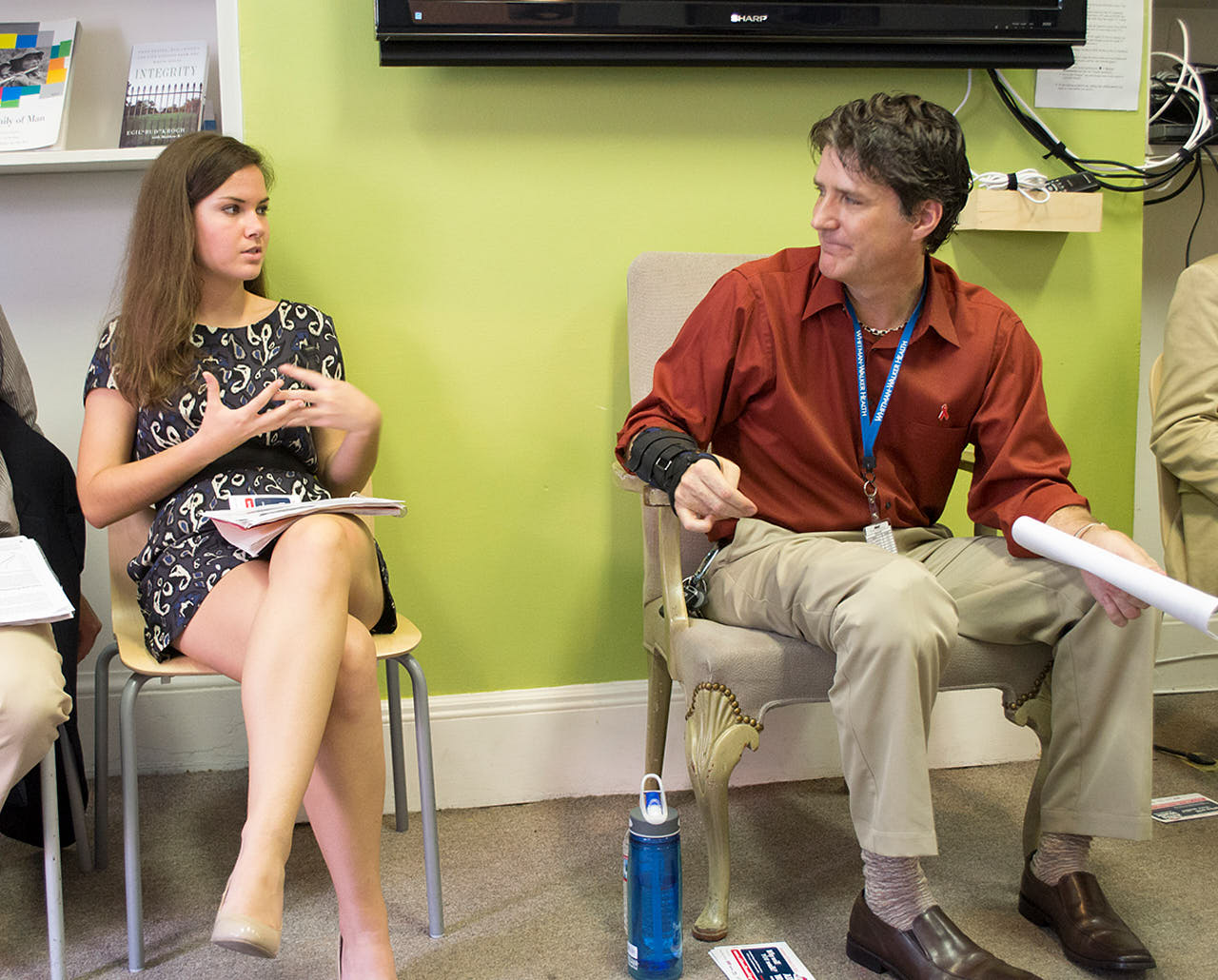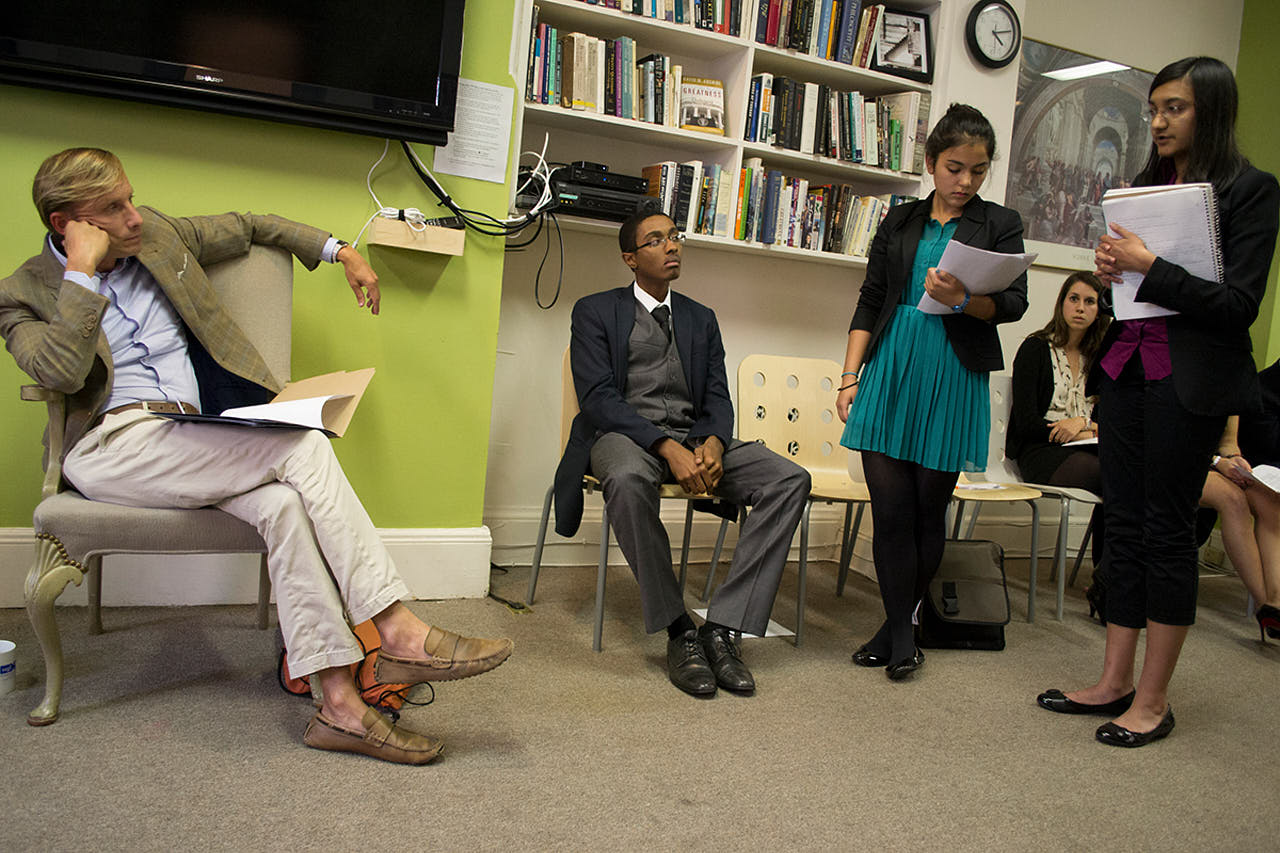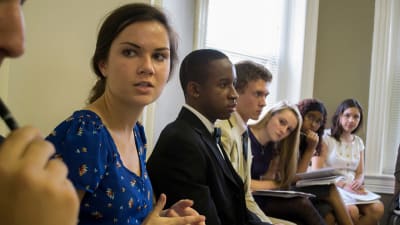SEGL hosts former U.S. Global AIDS Coordinator for third Master Class of the fall
Ambassador Mark Dybul, who visited SEGL this week for a Master Class, is the closest thing we’ve found to Socrates. His vast knowledge and enlightening questions consistently push students to the edge of their abilities, while his collegial manner and insightful encouragement help build their confidence. Dybul, who served as President George W. Bush’s U.S. Global AIDS Coordinator, was the final step in this past week’s global HIV/AIDS case study.
The week began on Monday morning when SEGL Science teacher Alvin Fridie gave students an overview of the scientific and sociological aspects of the virus’ spread. The presentation included an interactive mini-lab that demonstrated how quickly a virus can spread.
On Wednesday, the students split into four groups; each group visited a different embassy that represents a country funded by PEPFAR (President’s Emergency Plan for AIDS Relief): South Africa, Kenya, Mozambique, and Zimbabwe. At these embassies, top officials taught students about the issue from the assigned country’s point of view. What is the country doing, and what does it need to do? How can the United States help? What should the future include? After these visits, the students wrote two-page policy memos in which they proposed new ways of helping their countries over the next five years.

On Wednesday afternoon, we welcomed Justin Goforth, the Director of Medical
Adherence at the nationally-recognized Whitman-Walker Clinic in DC.
Goforth, who has spoken with every SEGL class, spoke about the pervasive
HIV epidemic in DC (where the disease has had far more of an impact than
in any state), the potential effects that President Obama’s health care
overhaul will have on HIV/AIDS care, and some of
the recent medical breakthroughs that could help fight the epidemic.
On Thursday afternoon, Dybul visited, heard each presentation, and asked the kinds of questions every SEGL graduate remembers. Along with penetrating questions about each country, students confronted classic policymaking challenges: Where is the money going to come from? Why give money to one country when its leadership is unethical or when that country is relatively wealthy? Why not give the money to American needs?

In the end, Dybul was impressed. He also left students with two thoughts:
First, if you love what you do, you will never be sorry. That is more
important than money, fame, or power. Second, have a ten-year plan for
your life, but know that if at the end of ten years you have followed
that plan, you probably did it wrong. You did it wrong because you
probably had many opportunities that emerged along the way that you
didn’t take because you were too laser-focused on your goal. (Dybul
says he originally thought he was going to be a philosopher or poet…how
could he have planned that one day he would
save millions of lives?)
Next up: The SEGL Odyssey and our Third Annual Homecoming Celebration!







